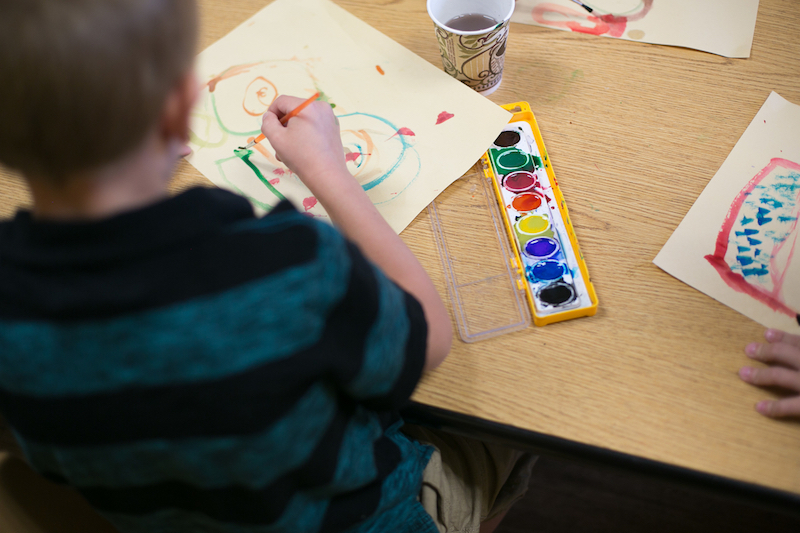Without a doubt, I play with more toys at the age of 30 than when I was 5. My entourage of teaching tools include cars that race, hippos that are hungry, a mouse that gets trapped, and balls that stick to the cabinet. Anything that will motivate a child to make a sound, say a word, or simply reach for the toy will do. I am a speech-language pathologist at Riley Hospital for Children in Indianapolis, where I treat children who have communication and vocal deficits.
In the beginning, when the world was created, it was very good (Gen. 1:31). But today it is broken. Some of my patients have altered minds from an accident or drug exposure. Others have inherited genetic disorders. Still others don’t know the cause of their disorder.
Yet in a world of suffering, I see life and hope in improved communication.
Danny was only saying vowels at the age of 3, yet was speaking like his peers by age 5. Sarah couldn’t breathe during her races due to vocal cord dysfunction; now, after education and training, she can. Stephen began saying only a few words; now he’s learning near age-level standards. Michael was afraid to speak in front of the class because he stuttered; now he has confidence to manage his speech in order to present. Improvements are made over time by gaining the child’s attention, interest, and trust.
Lifelong Journey
As Jesus humbled himself to become like us and to save us, I humble myself to become like a 3-year-old. I get down on the child’s level by sitting on the floor and playing with his favorite toys. I enter the child’s world so I can teach her word-by-word to enter the adult’s world. I become like them in small ways to help them talk.
By meeting with my patients weekly, I build long-term relationships with their families. We celebrate any and all successes, beginning with the correct use of a pronoun or the imitation of a sound in isolation. Sometimes moms cry tears of joy after a prosthesis is placed on a child’s throat and he makes noise for the first time. Others cry when a child presses “I love you” on a computer. Yet sometimes moms cry in my office when they realize there is no quick fix and their family is faced with a lifelong struggle.

I have my own struggles, too. Living is a society that focuses on productivity and financial gain, I am frequently discouraged and challenged to continue treating patients as individuals, not numbers. My goal is to have compassion for my patients and to care for them as if they were my own children.
Building Blocks
Children with language disorders have trouble understanding what words convey; in teaching the building blocks of language, then, I am preparing a path for God’s Word to be grasped. I like to think I’m laying little building blocks for God’s transforming grace.
Although my patients’ religious backgrounds vary, I am able to hold out hope in many ways. For all families, I try to communicate the value of their child’s life in a society that values efficiency and comfort over the self-sacrifice needed to care for children with disabilities.
For those who have communicated they believe in Christ, I have the honor of reminding them of the resurrection. Stephen’s mom was afraid her son had Fragile X Syndrome, a genetic condition that causes intellectual disability and behavioral and learning challenges. I was able to share with her that one day Stephen would no longer have Fragile X and that every tear would be wiped away when Jesus arrives make all things new, giving us perfect bodies like his.
The ultimate joy of serving children with special needs in a broken world is knowing that our Savior, who defeated death, has promised to return and complete the healing work I’ve undertaken. No matter our situations, Jesus alone gives us life in full (John 10:10).
Download your free Christmas playlist by TGC editor Brett McCracken!
 It’s that time of year, when the world falls in love—with Christmas music! If you’re ready to immerse yourself in the sounds of the season, we’ve got a brand-new playlist for you. The Gospel Coalition’s free 2025 Christmas playlist is full of joyful, festive, and nostalgic songs to help you celebrate the sweetness of this sacred season.
It’s that time of year, when the world falls in love—with Christmas music! If you’re ready to immerse yourself in the sounds of the season, we’ve got a brand-new playlist for you. The Gospel Coalition’s free 2025 Christmas playlist is full of joyful, festive, and nostalgic songs to help you celebrate the sweetness of this sacred season.
The 75 songs on this playlist are all recordings from at least 20 years ago—most of them from further back in the 1950s and 1960s. Each song has been thoughtfully selected by TGC Arts & Culture Editor Brett McCracken to cultivate a fun but meaningful mix of vintage Christmas vibes.
To start listening to this free resource, simply click below to receive your link to the private playlist on Spotify or Apple Music.





























